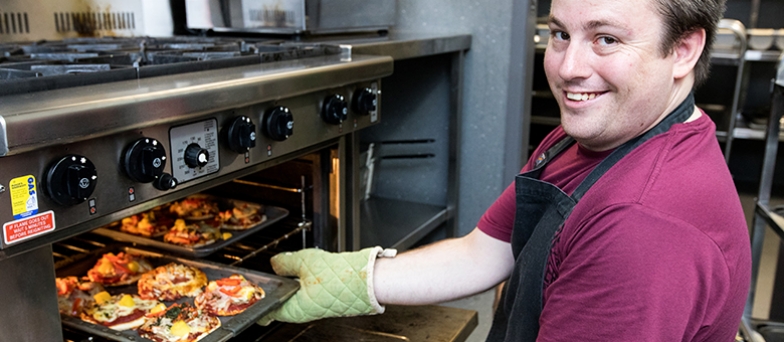After four years of pilot studies, trials, and the roll out process, the much-anticipated National Disability Insurance Scheme (NDIS) has finally been rolled out in Western NSW.
As of July 1 the NDIS is officially available NSW-wide, with Western NSW joined by South Eastern Sydney, Sydney, Far West District, Illawarra Shoalhaven, Mid North Coast, Murrumbidgee, and Northern NSW for the final stage of the roll out.
According to the NDIS March Quarterly Report, so far 78,000 Australians have benefited from the NDIS, with 14,357 new participants receiving an NDIS plan between January 1 and March 31, 2017. By 2020, it is expected that the NDIS will be delivered to 460,000 Australians living with a disability.
Challenge Disability Services Senior Manager Maxine Smith welcomed the Western region roll out, as Challenge has sites in Dubbo, Orange, Bathurst, Mudgee and Trangie.
“We have met with many people over the last three years who have received no funding, and have had to pay for help from their own wallets, many already under financial strain,” Maxine said.
“Under the NDIS they may be deemed as eligible and receive paid supports that could be life changing for them and their families.”
As of March 31, there were 36,035 NDIS participants in NSW with approved plans. In the local area, Challenge Disability Services has held seven NDIS forums and have supported 20 families and people with a disability with pre-plans to help them prepare for NDIS meetings. Since the last stage of the roll out, the NDIS has hosted workshops welcoming feedback from families and providers, both at a state level and nationally.
“Challenge Disability Services has participated in two of these workshops, including the national one, providing feedback on what has gone right and wrong in previous roll outs, and how they can be improved,” Maxine said.
“We have already seen a response from the NDIS from our feedback, with their recent announcement of more face-to-face meetings with participants.
“The NDIS needs to provide more time for pre-planning and explanation on how meetings and conversations with participants is reflected in their NDIS plan. We are hopeful that this roll out will be smoother and have minimal effect on participants and their families.”
In Western NSW, Challenge Disability Services currently provides five day programs; two Connexions programs for those aged between 18 and 35 with low support needs; two drop-in support services to assist people living with a disability in their own home; three respite facilities to provide carers with much-needed time off; and, three shared accommodation homes with another four homes scheduled to be opened in the next 12 months.
“Challenge Disability Services’ aim is to help those applying for the NDIS with a pre-plan, understanding of the process and what may be needed to be deemed as eligible,” Maxine said.
“We will also help people with a disability understand how to use their NDIS plan, by explaining what each section means and how it can be used.”
According to the NDIS March Quarterly Report, confidence in the NDIS amongst participants also appears to be good, with 88 per cent surveyed saying their experience was either good or very good, and 87 per cent saying they believed the NDIS would improve their life. Maxine said that many participants elect to continue with their current supports during the first 12 months of their NDIS plans.
“During this time they gain confidence and knowledge of what they are able to do with their NDIS plan,” Maxine said. “In the second 12 months we have seen a real change in the types of supports people are requesting, which are more suitable to their lives and interests.”
It’s not just the lives of people living with a disability that is set to improve with the NDIS, there are also economic benefits as well. According to National Disability Services (NDS), it is anticipated that the NDIS will have created 27,793 new disability sector positions by July 2019 and will allow 34,000 Australian carers to return to the workforce. This additional employment is expected to add up to $23b per annum in GDP.
“Since 2013 Challenge Disability Services, like many other services, has continually advertised for new staff to meet the demand of participant’s requests,” Maxine said.
“Challenge has successfully re-evaluated how we advertise and interview for staff to be timely and provide flexible support options for our participants. There has also been an improvement in the lifestyle of many unpaid carers, with some families finally being able to take holidays, join social groups or return to part time work.”
For more information about the roll out of the NDIS and the ways Challenge Disability Services can help navigate these changes, please enquire here.
Article from the Daily Liberal, 6 July 2017.


